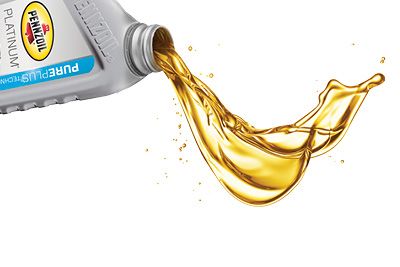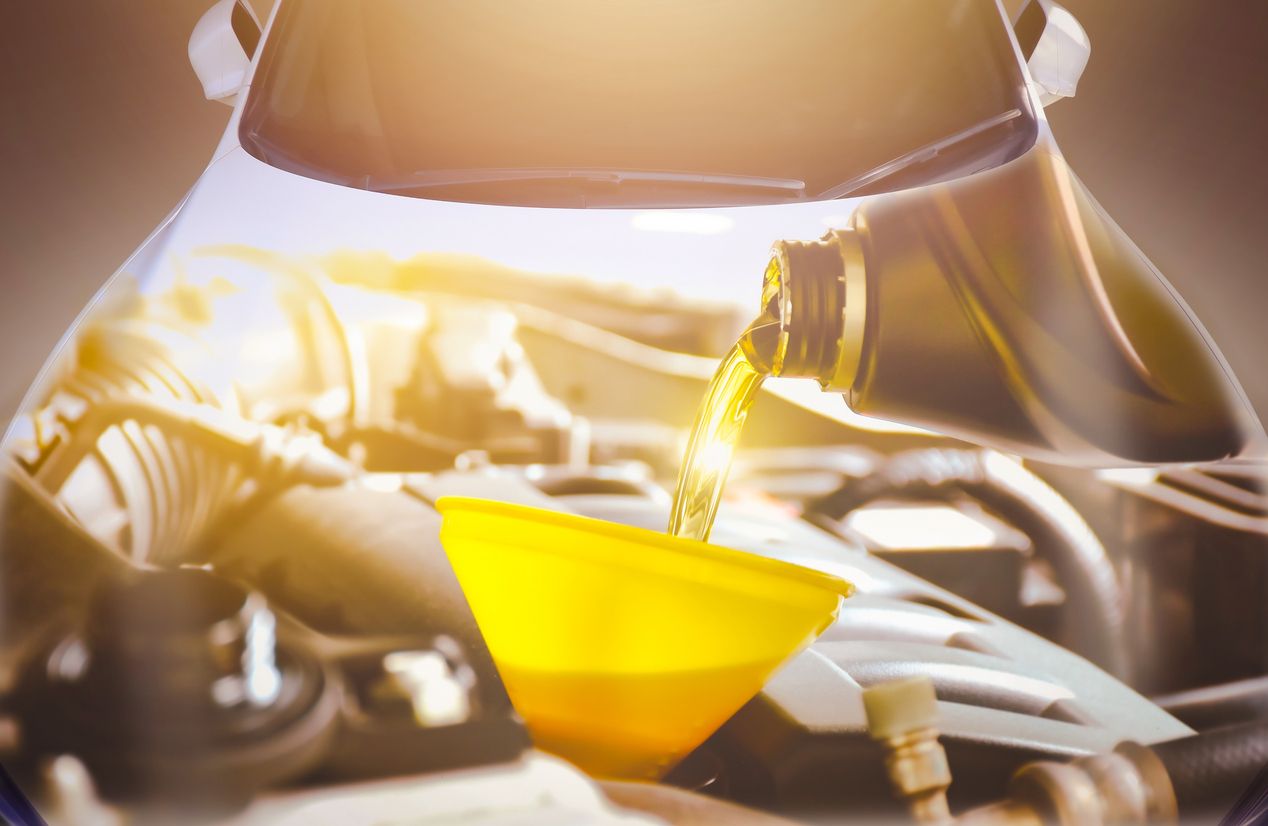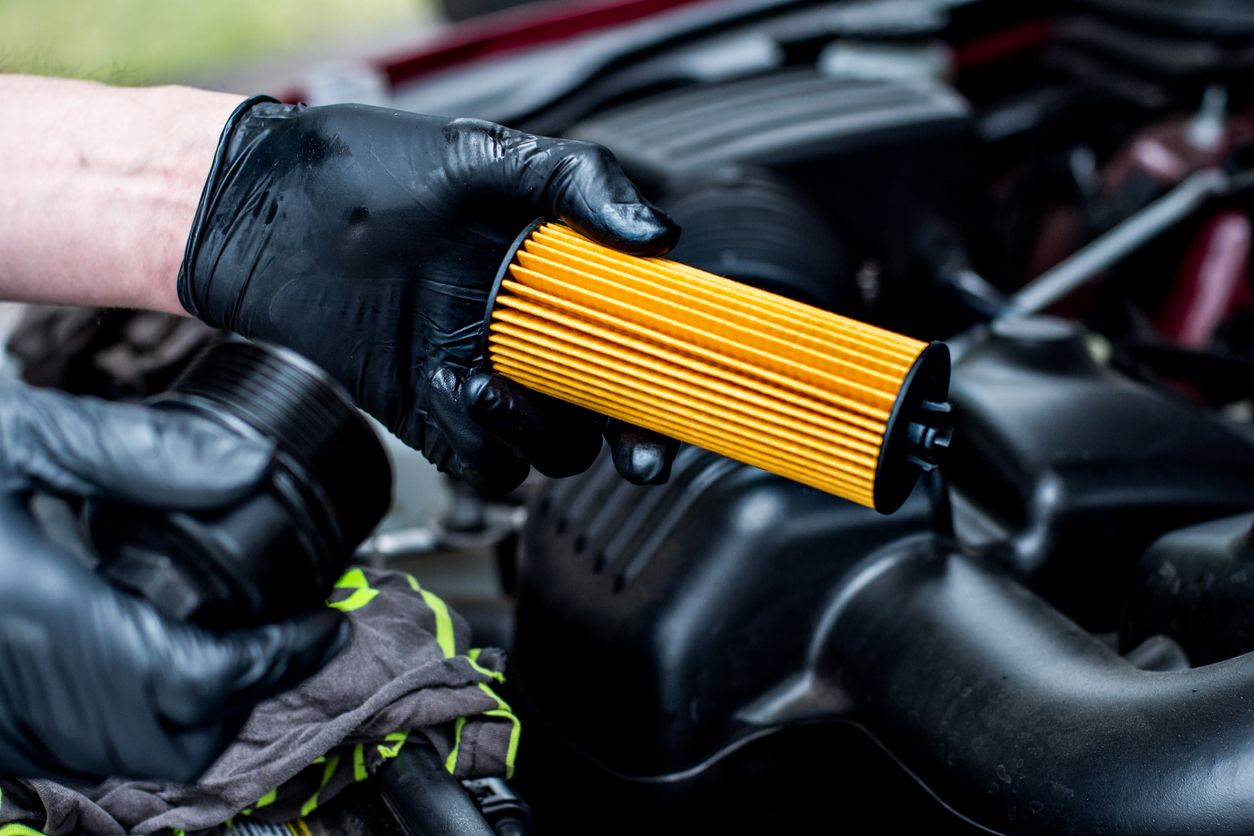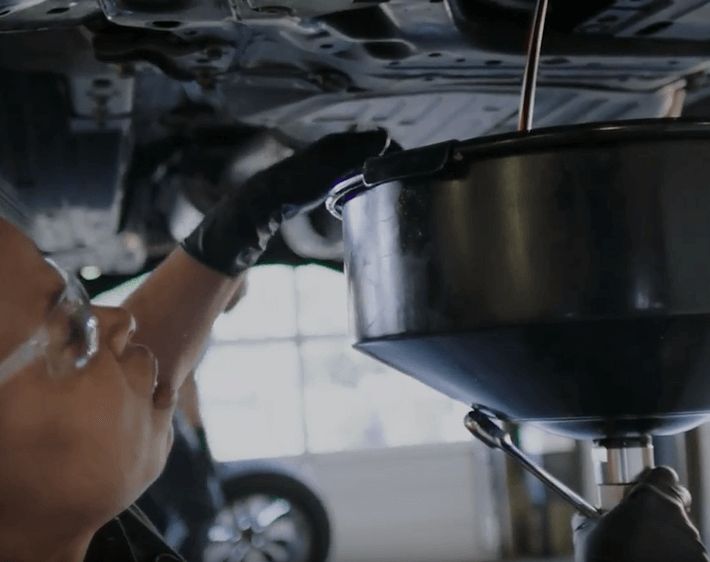Why is an oil change important?
Why is regular bathing important? It keeps you clean. Same goes for motor oil: it gets “worn” during its lifecycle. Regularly scheduled oil changes will help keep your engine clean and avoid the potentially engine-damaging effects contaminated oil can inflict. If you want to maximize engine performance, and most importantly, engine life, don’t skimp on your engine’s most vital lubricant.
How does motor oil break down?
Oil is pretty temperamental. One second it is slick, but then, before you know it, slick mutates into ‘ick.’ Let’s take a look at what’s going on in that engine of yours while you’re out cruising around.
- Motor oil becomes less effective over time. Constant exposure to heat, moisture and air leads to oil degradation (oxidation). The end result? Oil thickening, sludge, deposit formation and corrosive wear. Sounds awful, right? Well it is, and all these nasty elements can take a toll on your engine. You don’t want those troublemakers knocking around your engine parts.
- Oil additives depleted, oil life finished. When oil additives are completely exhausted, oil can no longer handle the dirt and metals that are freely floating around, causing the oxidation that creates sludge. Most importantly, old oil can no longer protect your engine against corrosion and wear when it breaks down. Picture your engine oil trying to work its way through hard and sticky sludge that’s clogged up oil passageways in your engine. Doesn’t sound very effective, does it? (Not to mention all the havoc these added barriers can inflict on your engine.) Leaving oil in your engine well past the recommended oil change date can result in disastrous conditions and expensive repairs.
Changing your oil on schedule will remove contaminated oil and replenish your engine with fresh oil. Proper lubrication provides the best protection.
How does oil travel through my engine?
Very smoothly. Oil is pumped through small engine passageways lubricating all moving parts while acting as a cooling agent to reduce engine heat. Talk about a pretty important job. Your engine’s survival is counting on it. Sit back and relax. We’ll show you how it works:
What are all the parts involved in making sure the oil pumps through the engine effectively?
- The Moving Parts: Valve train, main and rod bearings, piston rings and cylinder walls all need lubrication in order to prevent metal on metal friction in the engine.
- The Oil Pan: This is where your oil chillaxes, waiting to be propelled into action by the oil pump. Once the pump gets the oil moving, the oil travels through tiny oil passageways, lubricating all the functioning parts and then finally dropping back down to the oil pan. Cycle complete.
- The Oil Pump: This part is crucial to engine lubrication. The oil pump is responsible for creating the pressure that pushes your oil throughout your engine parts. Without it, your oil would just sit in the pan. And that’s not very useful.
- The Oil Filter: The oil filter captures any harmful debris, metal or dirt that’s entered your oil system. The better condition your oil filter is in, the better protected your engine will be. A dirty filter is as useful as a dirty napkin. And the only use for that is in the trash bin.
What happens if I don’t get an oil change?
Skipping oil changes, exceeding mileage or going long periods of time before your next oil change can accelerate the wear on the vital parts that keep your car running smoothly, eventually leading to premature engine breakdown.
Need the condition of your engine inspected? We can help.
What is a valve train?
The valve train controls multiple parts in order to manage the amount of air and fuel that enters the combustion chamber at all times.
What are main and rod bearings?
Main and rod bearings are half cylinder metal fittings that are lubricated so that the crankshaft, connecting rods and engine block function smoothly and avoid friction.
What are piston rings?
Piston rings are typically a set of three rings that: provide seals for the combustion chambers, transfer piston heat and manage engine oil consumption.
What are cylinder walls?
Inside each cylinder are walls in which the pistons travel between. These walls must remain lubricated with oil at all times to ensure the pistons don’t create friction inside any of your vehicle’s cylinders.
What is a crankshaft?
The crankshaft is connected to the pistons, providing precise and accurate piston rotation inside your vehicle’s cylinders. The crankshaft should always remain lubricated as it rotates inside the main and rod bearings.
Why choose Firestone Complete Auto Care vs. ‘fast lube’ places?
Most “In-and-out” oil change shops provide very limited benefits outside of a fast oil change. Firestone Complete Auto Care offers so much more. Consider us your one stop shop for all your maintenance, repair and tires needs. We staff over 2,200 ASE certified general technicians nationwide, giving you the most complete service out there.
As part of our free Courtesy Check, we’ll give you the option of a 19 point inspection to determine the condition of your visible car parts. We can also perform a more comprehensive Complete Vehicle Inspection. This covers over 200 parts and makes sure your car is functioning properly.
Should your vehicle need maintenance, repairs or tires, we’ll let you know and give you the option of having it serviced right away. No more jumping around town and making extra appointments on multiple days for your vehicle’s needs. Talk about added convenience and time saved.
Get a more complete oil change. Schedule yours at Firestone Complete Auto Care.



